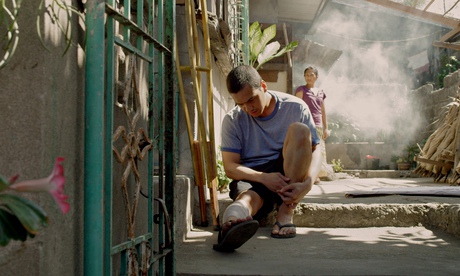
Fans of Filipino director Lav Diaz's "slow cinema/duration and space" aesthetic swooned at his seven-and-a-half-hour epic Melancholia. For them, this tale of Dostoyevskian crime and punishment may seem whimsically slight, although more callous editing might have enhanced rather than undercut the film's key themes. Unravelling at the speed of life, Norte (the title and setting make reference to the Ilocos Norte home of the Marcos family, "the place where history ended") follows two polarised protagonists joined by an act of murder: Joaquin (Archie Alemania), an impoverished family man, wrongly imprisoned but stoically resilient, whose growing virtue grants him quasi-angelic status; and Fabian (Sid Lucero), a mouthy law-school dropout whom you will want to strangle after the first five minutes, and whose self-serving rhetoric leaves a trail of destruction in its wake.
Diaz is clear that the film is intended "to warn people about fundamentalism, about fascism", and Fabian's dogmatic outpourings are duly tied to rape, incest, and murder most foul – atrocities committed just out of frame, to powerful dramatic effect. Yet the film's most affecting moments are more low-key; a mother contemplating infanticide, suggested through the simple act of stepping backwards from her children; a man levitating above his bed, held in dreamlike suspension between this world and the next; an authoritarian wretch asking for forgiveness as the prisoner he tormented wipes his fevered brow. Such moments are electrifying – the spaces between them challenging.

